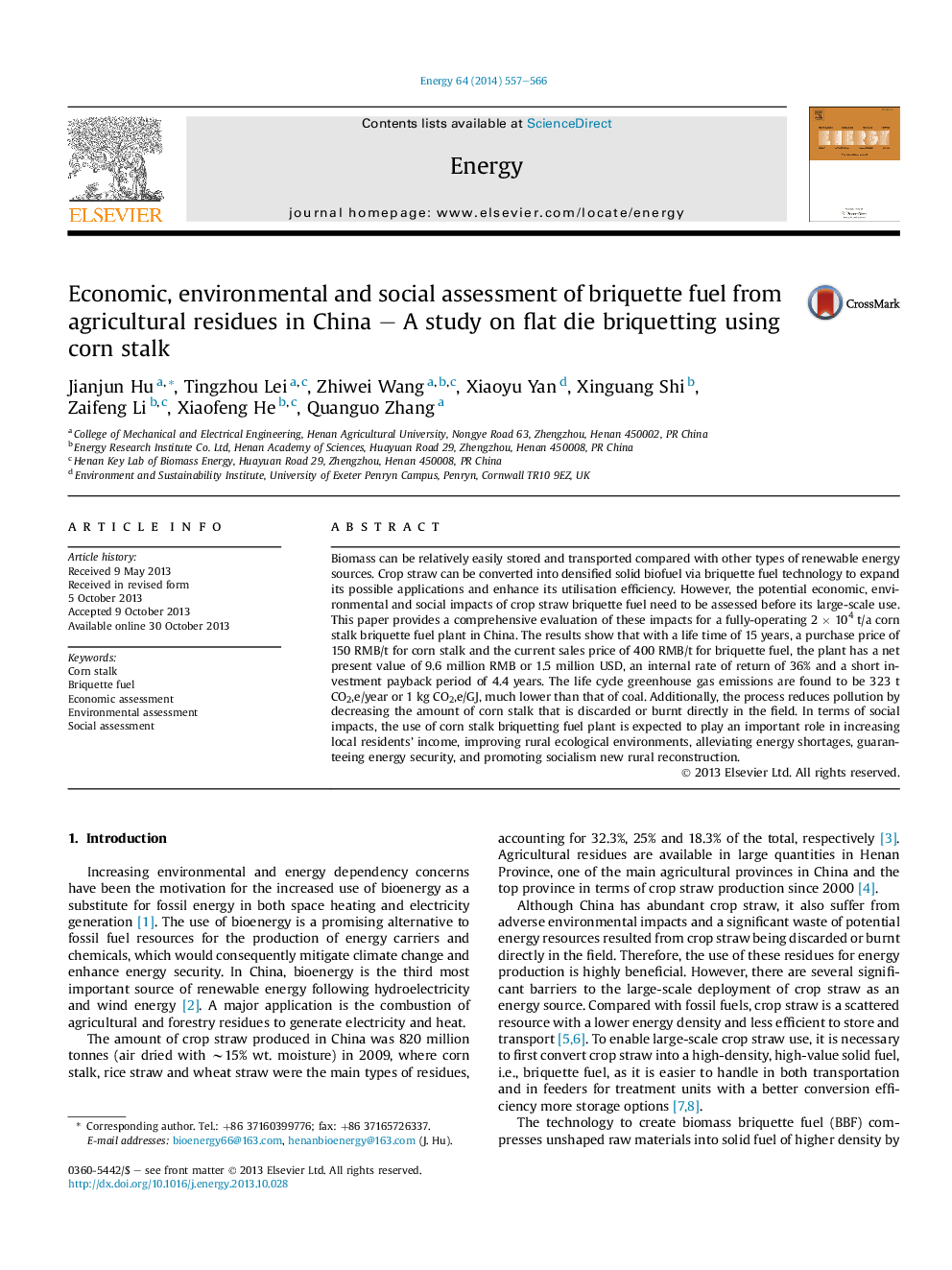| Article ID | Journal | Published Year | Pages | File Type |
|---|---|---|---|---|
| 8078775 | Energy | 2014 | 10 Pages |
Abstract
Biomass can be relatively easily stored and transported compared with other types of renewable energy sources. Crop straw can be converted into densified solid biofuel via briquette fuel technology to expand its possible applications and enhance its utilisation efficiency. However, the potential economic, environmental and social impacts of crop straw briquette fuel need to be assessed before its large-scale use. This paper provides a comprehensive evaluation of these impacts for a fully-operating 2Â ÃÂ 104 t/a corn stalk briquette fuel plant in China. The results show that with a life time of 15 years, a purchase price of 150 RMB/t for corn stalk and the current sales price of 400 RMB/t for briquette fuel, the plant has a net present value of 9.6 million RMB or 1.5 million USD, an internal rate of return of 36% and a short investment payback period of 4.4 years. The life cycle greenhouse gas emissions are found to be 323 t CO2,e/year or 1Â kg CO2,e/GJ, much lower than that of coal. Additionally, the process reduces pollution by decreasing the amount of corn stalk that is discarded or burnt directly in the field. In terms of social impacts, the use of corn stalk briquetting fuel plant is expected to play an important role in increasing local residents' income, improving rural ecological environments, alleviating energy shortages, guaranteeing energy security, and promoting socialism new rural reconstruction.
Related Topics
Physical Sciences and Engineering
Energy
Energy (General)
Authors
Jianjun Hu, Tingzhou Lei, Zhiwei Wang, Xiaoyu Yan, Xinguang Shi, Zaifeng Li, Xiaofeng He, Quanguo Zhang,
